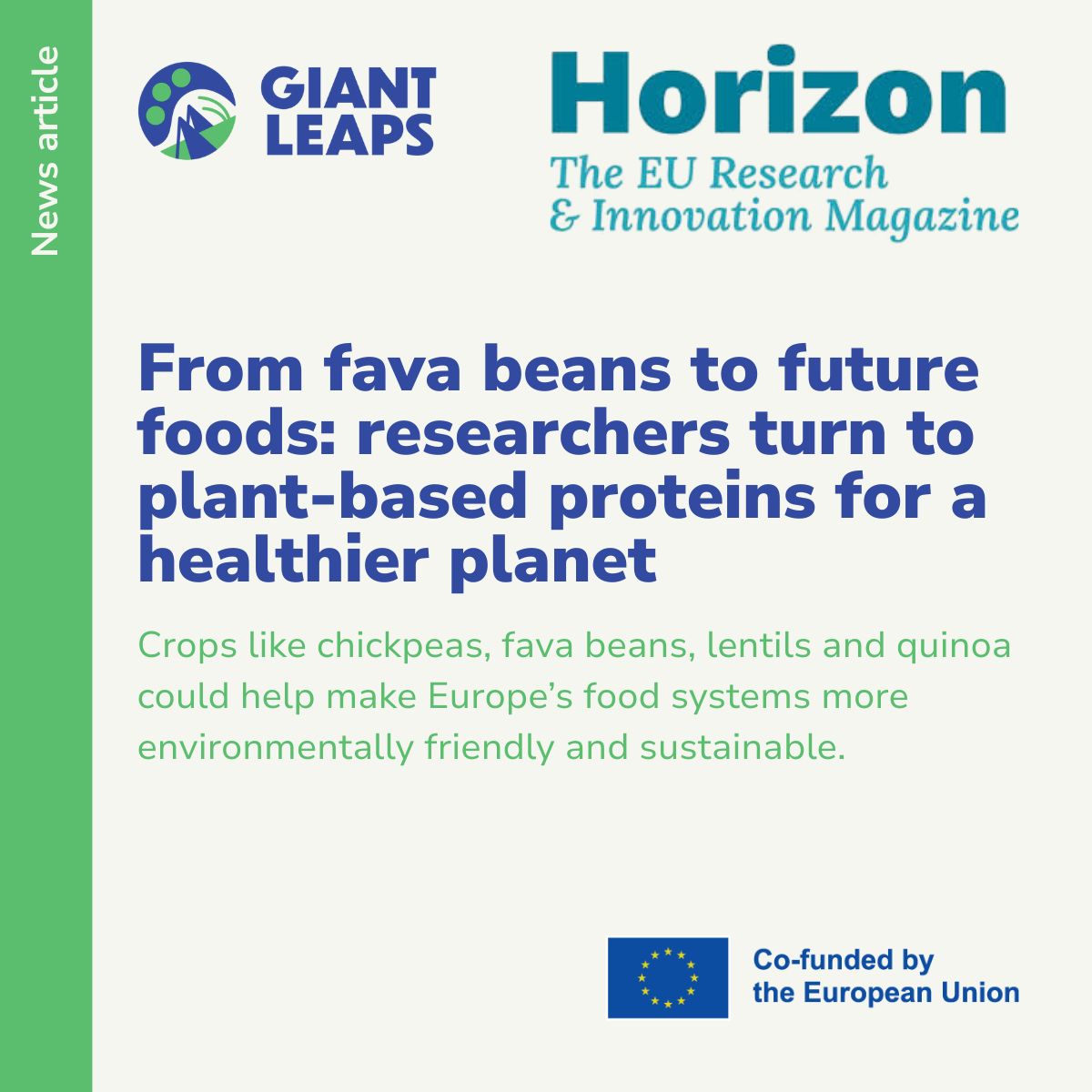Interview with Jelena Milešević, Nutrition and Food Science Expert at CAPNUTRA

Jelena Milešević, Nutrition and Food Science Expert at CAPNUTRA, is an integral contributor to Work Packages (WP) 1 and 7 in the Giant Leaps project. In WP1, Jelena provides consultancy on developing consumer acceptance questionnaires for plant-based protein products. Meanwhile, in WP7, Jelena’s work focuses on studying current dietary patterns in Serbia, evaluating its nutritional quality, and designing future diet models incorporating alternative proteins. Through CAPNUTRA, Jelena collaborates with various project partners to integrate regional dietary insights, paving the way for more sustainable and nutritionally balanced diets. Jelena’s broad expertise in public health nutrition and food science underpins this role, spanning topics such as micronutrient deficiencies, food formulations, and food system transformation.

Can you tell us about CAPNUTRA’s role in WP1 and WP7? How does this work contribute to understanding dietary patterns and food composition in Serbia?
At CAPNUTRA, I serve as a scientific consultant, providing expertise in nutrition to support the
project teams. In WP1, CAPNUTRA's role involves aiding in the development of consumer acceptance questionnaires for
plant-based protein products. We aim to capture the right insights into how consumers view these alternative options.
For WP7, we focus on studying the nutritional quality of current diets in Serbia but expanding to the Balkan region and
further designing of future diets that incorporate newly developed plant-based products rich in protein and
understanding their nutritional adequacy.
Our contributions revolve around food consumption data provision and analysis. This includes providing information
about what people eat, the nutritional value of their diets, and how this impacts their overall health. The findings
allow us to create dietary models that align with both nutritional needs and consumer preferences, paving the way for
more sustainable dietary shifts.
Based on your work, what are the main factors influencing consumers' readiness to shift toward more plant-based or alternative proteins in the Balkan region? How does this compare to other parts of Europe?
In Serbia, but also in the whole Balkan region, several factors influence consumer readiness for plant-based or alternative proteins:
- Awareness: Many are unfamiliar with the nutritional and environmental benefits of alternative proteins.
- Accessibility and Affordability in regular stores are significant barriers.
- Demographics: Younger, urban consumers tend to be more open to change compared to rural populations.
- Health Concerns: Issues like allergies or intolerances can encourage consumers to explore alternatives.
- Cultural Preferences: Traditional diets in the region are rich in animal proteins and deeply rooted in cultural practices, making a shift more challenging.
Compared to other parts of Europe, where plant-based trends are more mainstream, the Balkans are still catching up in terms of availability, awareness, and consumer education.
How do you currently evaluate the nutritional quality of diets in the regions you study? Could you describe the methodologies or tools you use?
The nutritional quality of diets in the Balkans is assessed through several methodologies:
- Validated Questionnaires: Tools like 24-hour dietary recalls (24HDR), food propensity questionnaires (FPQs), and food records are widely used.
- Focus Groups: Discussions with consumers provide qualitative insights into eating behaviours and preferences.
- Biomarker Assessments: These help us link dietary patterns with non-communicable disease (NCD) risk.
- Anthropometry: Measurements like BMI and body composition are also included to evaluate overall health.
Our findings indicate that mainstream diets are high in carbohydrates, saturated fats, and animal protein, often involving fried or grilled foods. This dietary pattern highlights a need for healthier, more balanced alternatives.
How would you explain your work in Giant Leaps to the general public? What steps do you follow in your research?
In simple terms, my work at Giant Leaps is about exploring the potential of embracing new alternative protein products for European consumers and incorporating them into their daily diets. These products are developed from various sources, such as legumes, vegetables, algae, and even insects.
Our role involves understanding current dietary habits, identifying nutritional gaps, and determining how these innovative products can fulfill those needs. We also assess consumer readiness and preferences, ensuring that the products not only meet dietary standards but also appeal to the palate.
What are the main challenges and considerations in designing future diet models to meet consumers' nutritional needs and expectations?
While we are still defining specific dietary recommendations, one thing is clear: the balance between nutritional adequacy and taste preferences is critical. Consumers are unlikely to adopt a diet that doesn’t appeal to their senses, regardless of its health benefits.
Key challenges include ensuring:
- Accessibility: Making plant-based options available in everyday settings, from grocery stores to restaurants.
- Affordability: Alternative protein products need to be priced competitively.
- Education: Informing consumers about the health and environmental benefits of these choices.
How does your expertise in nutrition and food systems transformation contribute to broader public health improvements in the Balkans?
The Balkans face significant health challenges related to poor dietary habits, including obesity and other NCDs. Transitioning to plant-based diets rich in alternative proteins could address many of these issues. For example:
- Micronutrient Deficiencies: Many plant-based alternatives are fortified, which could help alleviate common deficiencies.
- Healthier Dietary Patterns: These products can reduce reliance on saturated fats and excessive carbohydrates.
However, for these benefits to reach the broader population, alternative proteins need to be integrated into mainstream food environments. This requires efforts to enhance availability, affordability, and consumer acceptance.
In your view, what steps are necessary to make alternative protein products a part of everyday diets in the Balkans?
To make alternative proteins mainstream, we must focus on:
- Improving Availability: Ensuring these products are found not just in specialty health stores but also in regular supermarkets and restaurants.
- Educating Consumers: Promoting awareness about the health and environmental benefits of plant-based diets.
- Reducing Costs: Finding ways to make alternative protein products affordable for all socioeconomic groups.
- Creating Appeal: Developing recipes and products that match traditional Balkan tastes and culinary practices.
By addressing these factors, we can bridge the gap between innovation and daily consumption, making healthier diets accessible to everyone in the region.


